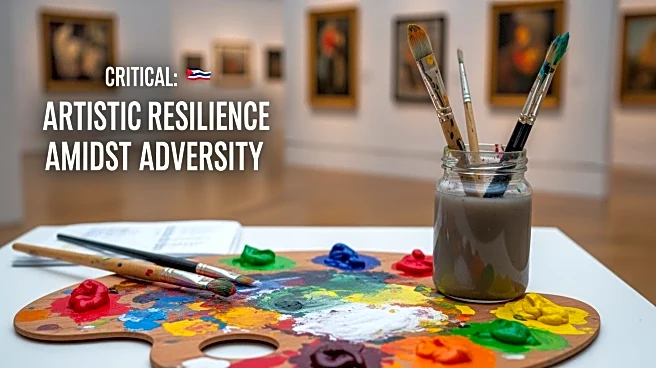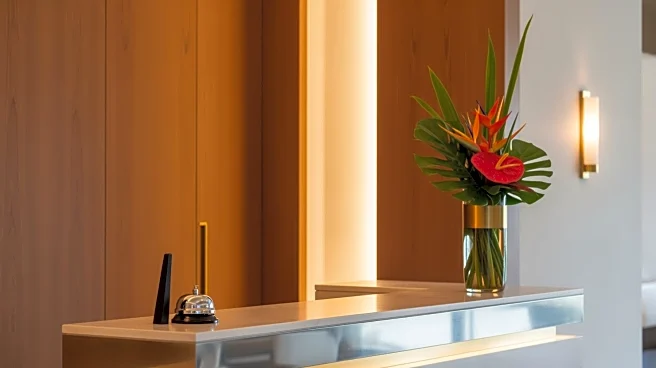What's Happening?
Palestinian artist Samia Halaby, known for her optimistic approach, is exhibiting at Frieze Masters in London after her retrospective at the Eskenazi Museum of Art was cancelled last year. The cancellation
was reportedly due to concerns over her social media posts supporting Palestinian causes amidst the Israel-Gaza conflict. Despite the setback, Halaby continues to advocate for Palestinian rights and engage in activism, including creating fundraising posters and participating in the Gaza Biennale. Her work has gained significant attention, with inquiries from collectors and institutions, highlighting her influence in the art world.
Why It's Important?
The cancellation of Halaby's exhibition underscores the ongoing tensions surrounding the Israel-Palestine conflict and its impact on cultural expression. It raises questions about freedom of speech and the role of art in political discourse. Halaby's continued activism and presence at Frieze Masters demonstrate resilience and the power of art to challenge narratives and promote dialogue. Her work's popularity among collectors and institutions suggests a growing recognition of Palestinian voices in the global art scene, potentially influencing public perception and policy discussions.
What's Next?
Halaby's participation in Frieze Masters may lead to further opportunities for her work to be showcased internationally, potentially increasing awareness and support for Palestinian causes. The art community's response to her exhibition could influence future decisions by museums and galleries regarding politically charged artworks. As Halaby continues her activism, she may inspire other artists to use their platforms for social change, contributing to broader discussions on human rights and cultural representation.
Beyond the Headlines
The controversy surrounding Halaby's exhibition highlights the ethical considerations museums face when balancing artistic expression with political sensitivities. It also reflects the challenges artists encounter when addressing contentious issues, emphasizing the need for spaces that support diverse perspectives. Halaby's story may encourage institutions to reevaluate their policies on political art, fostering environments that embrace dialogue and understanding.










